 August 2, 2021 2:54 pm
Published by Climate Extremes
August 2, 2021 2:54 pm
Published by Climate Extremes
Climate change is affecting the amount of water evaporating (from soils and surfaces) and transpiring (evaporating through plant leaves) from the land surface. Trends derived from DOLCE V3 show clear increases in ET since 1980 over the majority of the Earth’s surface.
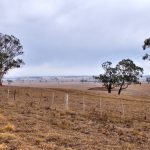 April 12, 2021 4:02 pm
Published by Climate Extremes
April 12, 2021 4:02 pm
Published by Climate Extremes
Until now, flash drought research has been on the regional scale and has been limited to observations and reanalyses. CLEX researchers have been the first to examine flash drought in climate models.
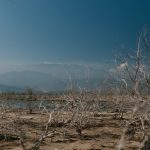 December 14, 2020 11:01 am
Published by Climate Extremes
December 14, 2020 11:01 am
Published by Climate Extremes
A major component of the research in the Drought program over the past four months has focused on the interface between real-world data and climate models. The aim of much of this research has been to improve how land surface models represent some of the key processes that influence the length, and severity of drought.
 November 24, 2020 12:27 pm
Published by Climate Extremes
November 24, 2020 12:27 pm
Published by Climate Extremes
In this paper, the researchers investigated how dryness, represented by the aridity index, affects the inter-annual variability of ecosystem iso/anisohydricity at the regional scale, estimated using satellite microwave vegetation optical depth observations.
 August 10, 2020 3:58 pm
Published by Climate Extremes
August 10, 2020 3:58 pm
Published by Climate Extremes
CLEX researchers and colleagues find soil moisture variations need to be considered over at least a decade before a steady-state assumption can be made.
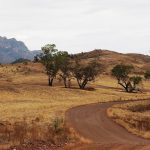 March 21, 2019 2:30 pm
Published by Climate Extremes
March 21, 2019 2:30 pm
Published by Climate Extremes
New students, an OA for Andy Pitman and some key work on evaporation, the impacts of mesophyll conductance on plant growth, a new algorithm for photosynthesis and future projections of drought made for a strong start to 2019.
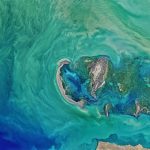 March 6, 2019 4:23 pm
Published by Climate Extremes
March 6, 2019 4:23 pm
Published by Climate Extremes
New research suggests that the concept of maximum evaporation reported here is a natural attribute of an extensive wet evaporating surface. This provides a fundamental new insight as to how radiation, evaporation and temperature are interlinked.
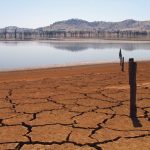 March 30, 2018 6:21 am
Published by Climate Extremes
March 30, 2018 6:21 am
Published by Climate Extremes
In a major achievement, a version of the Australian community land model is now running in the ACCESS modelling system. This version includes the science advances led by Mark Decker around hydrology and soil evaporation, and the science advances led by Martin de Kauwe and Jatin Kala. It also includes major bug fixes identified by collaborators in the UK, and by colleagues in CSIRO. For the first time, we have a version of the Australian community land model coupled with an up to date version of the UK Meteorological Office’s atmosphere model.








